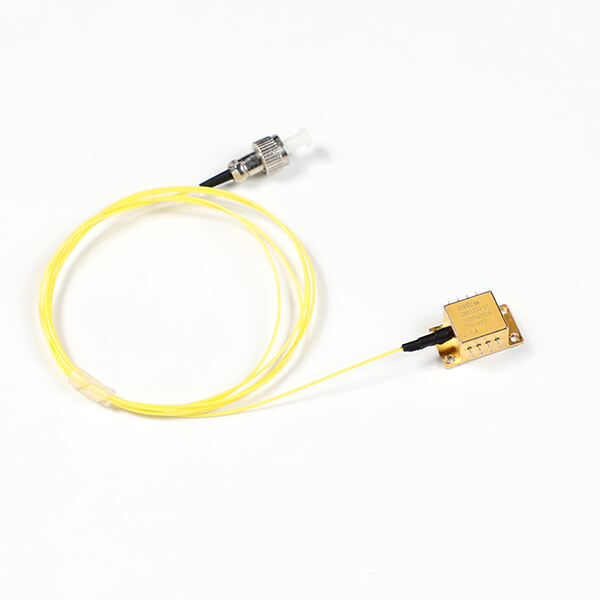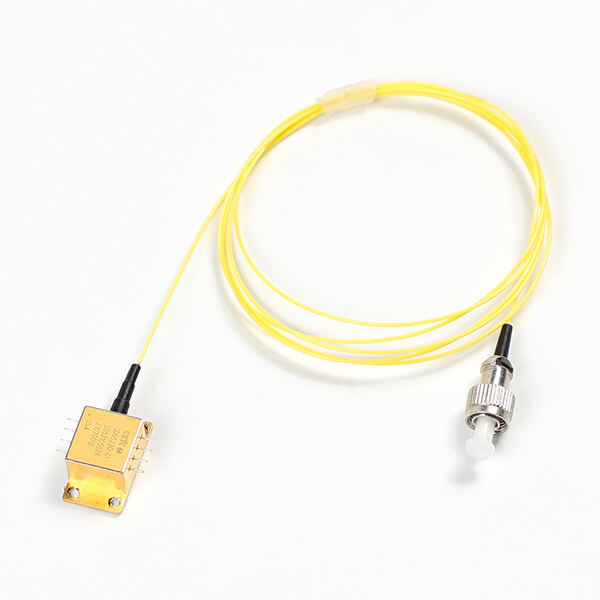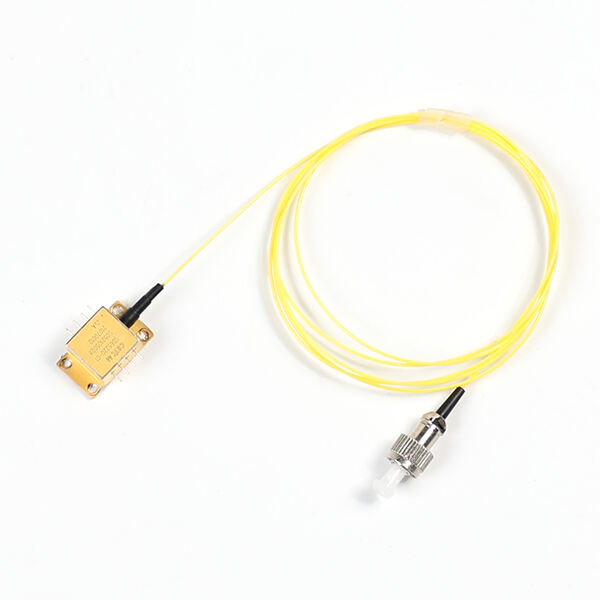تقديم فوتوداود APD بواسطة شركة أنيوي جاينت أوبتوإلكترونيكس
الديود الفوتوضوئي APD هو مجرد نوع خاص من مستشعر الضوء الذي سيكشف عن كميات ضئيلة جدًا من الضوء، بالإضافة إلى منتجات شركة Anhui Giant Optoelectronics مُحول تناظري من الزمن إلى الرقمي . وهذا في الواقع يبرع في اكتشاف أشياء معينة مثل الليزر وأنواع أخرى من الضوء التي قد لا تتمكن من رؤيتها بأعينك المجردة. يستخدم هذا في مجموعة واسعة من الحالات، من التجارب السريرية إلى التقييم الطبي إلى قياس سطوع شاشة التلفاز.

من الأسباب الرائعة لاستخدام الديود الفوتوضوئي APD هو أنه يستخدم شيئًا يُسمى ضرب الانهيار، وهو مشابه لـ تحويل الزمن إلى رقمي Tdc تم تطويرها بواسطة Anhui Giant Optoelectronics. قد يبدو هذا كأنه كلمة كبيرة ومعقدة، لكن معناها هو أنه عندما يصطدم فوتون (وهو جسيم صغير من الضوء) بالمستشعر، فإنه يجعل عددًا كبيرًا جدًا من الإلكترونات تتحرك، مما يجعل الإشارة أكثر قوة مما لو كانت باستخدام دايود ضوئي عادي. وهذا يجعل مستشعرات APD الدايودية الضوئية أكثر حساسية ودقة مقارنة بأنواع أخرى من مستشعرات الضوء.

مثل معظم الأدوات، من المهم استخدام مستشعر APD الخاص بالدايود الضوئي بشكل صحيح، وكذلك المنتجات الخاصة بـ Anhui Giant Optoelectronics مثل ليزر الألياف البصرية بيكوسيكوند .这意味着 إذا كنت تعمل مع الليزرات أو مصادر ضوء عالية الكثافة، فيجب ارتداء معدات الوقاية مثل النظارات أو القفازات. كما يعني التأكد من أنك تستخدم النوع المناسب من المستشعر للعمل - على سبيل المثال، بعض مستشعرات APD الدايودية الضوئية مصممة لاستخدام الضوء تحت الأحمر، بينما البعض الآخر يكون أكثر ملاءمة للضوء الأزرق أو الأخضر.

إذا كنت تفكر في استخدام فوتودايود APD، هناك العديد من الأمور التي من المهم أيضًا ألا تنساها لضمان الحصول على اللازم من المستشعر، بالإضافة إلى جهاز توليد الموجة الترددية المقدم من شركة Anhui Giant Optoelectronics.
نقدم مجموعة من الخيارات، مثل تخصيص الوظائف، تخصيص المعلمات، فوتوديود apd، عينات الاختبار.
بناءً على قدرات البحث والتطوير في شركتنا، طورنا منتجات فوتوديود apd التي تعتبر من الأفضل في السوق من حيث الأداء والوظائف.
نحن شركة ملتزمة متخصصة في الإلكترونيات البصرية. خبرتنا في فوتوديود apd تمتد إلى جميع جوانب عملنا، من البحث والتطوير المتقدم إلى التصنيع الدقيق.
لدينا خبرة واسعة في تصميم حلول لتلبية متطلبات كل عميل.
من الأمور المهمة جدًا عند اختيار فوتودايود APD يمكن أن تكون الجودة المرتبطة بالمستشعر نفسه، مثل منتج شركة Anhui Giant Optoelectronics مثل مستشعر فوتون واحد . من المهم أيضًا العثور على صانع يتمتع سمعة طيبة وخبرة كبيرة في إنتاج مستشعرات عالية الجودة. ويجب عليك أيضًا التركيز على أمور مثل حساسية المستشعر، وقت الاستجابة، ومستوى الضوضاء، للتأكد من أنه مناسب جيدًا لنوع العمل الذي ستقوم به.
- الاختبارات الطبية: حيث تُستخدم غالبًا لقياس مستوى الضوء المنعكس من الشرايين أو الأنسجة
- التجارب العلمية: حيث تُستخدم غالبًا لاكتشاف مستويات ضئيلة من الضوء المنبعث من الجسيمات أو الذرات
- أنظمة الاتصالات: حيث يمكن استخدامها لتعزيز الإشارات في الكابلات الضوئية القابلة للذوبان
- الوظائف الإبداعية: حيث تُستخدم غالبًا لإنشاء تثبيتات تفاعلية تستجيب للضوء عند النظر إلى البيئة المحيطة
1. قم بتوصيل فوتوداود APD الخاص بك بمصدر طاقة مشحون وكمبيوتر أو وحدة أخرى يمكنها رؤية إشارة الإخراج.
2. تأكد من أن المستشعر يقع بدقة وفقًا لمصدر الضوء الذي تقوم بقياسه. تحتوي معظم الفوتوداودات APD على عدسة صغيرة في الأمام تساعد في تركيز الضوء الوارد.
3. إذا كنت تعمل مع الليزر أو مصادر ضوء عالية الكثافة، تأكد من ارتداء معدات السلامة المناسبة مثل النظارات أو القفازات.
4. إذا كنت تلاحظ ضوضاء أو إشارات غير مرغوب فيها في الإخراج، حاول تعديل الحساسية أو الإعدادات الأخرى على مستشعرك لتقليل الاضطراب.